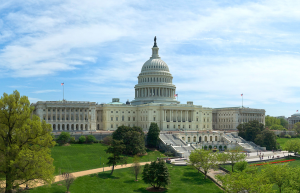
The Senate Homeland Security and Governmental Affairs Committee on Wednesday approved a slew of bipartisan bills aimed at bolstering the nation’s cybersecurity posture, prohibiting federal purchases of drones from certain countries, and safeguarding U.S. innovation and privacy protections related to the procurement of systems enabled by artificial intelligence. The Cyber Response and Recovery Act (S. 1316), which advanced on a voice vote, would authorize a $20 million fund and enable the Department of Homeland Security’s Cybersecurity and Infrastructure Security Agency…

 By
By 











